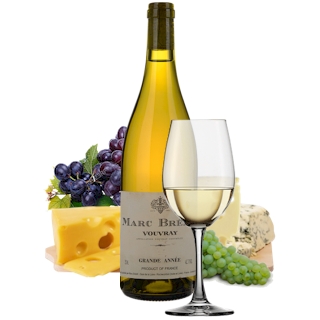


The Scottish-born Ryrie brothers ventured into the Yarra Valley as they moved their cattle south from Sydney. Taking up a grazing license of 43 000 acres, they named the property Yering, its Aboriginal name. The Ryrie's planted two varieties, the Black Cluster of Hamburg and a white grape variety called Sweetwater. During the early 1850s they returned to Sydney and Paul de Castella took ownership of Yering Station, developing the property from what remained primarily a cattle station into a landmark of winemaking in Victoria.

During the 1850s Yering Station began to take shape. Paul de Castella extended the vineyards and cultivated the varieties with new cuttings imported from France. In 1861 Yering Station won the Argus Gold Cup for the best Victorian vineyard. De Castella advocated for strong communication between vineyard and winery. In 1889 Yering Station won a Grand Prix at the Universal Exhibition in Paris. Only fourteen such awards were ever granted internationally. The winery received the sole award for a wine produced in the southern hemisphere.
After changing hands several times throughout the early-to-mid 1900s, Yering Station was purchased by the Rathbone family in 1996. A further 100 acres of vines were planted and winemaker Tom Carson joined the young team. That same year a joint venture was signed with Champagne Devaux, a leading Champagne house in France, to make the now famed Yarrabank sparkling. The Rathbone family made plans for the development of a state-of-the-art winery to accommodate and complement the anticipated increase in winemaking standards.
In recent times, the Yering Station vision has culminated in some exciting recognition with the International Winemaker of the Year at the highly coveted International Wine and Spirit Competition, London in 2004 and the property's induction into the Australian Tourism Awards Hall of Fame in 2006.

Depending on the season, harvest at Yering Station begins around late February / early March and is a bustling, exciting time of year in the vineyards and winery. Fruit arrives freshly picked in the cool of morning and is handled before the heat of the day to ensure optimum flavour is preserved. Depending on its destination, fruit will either go straight through the crusher de-stemmer, or be loaded into one of two air bag presses for a highly controlled and gentle extraction of juice.
As a family-owned winery Yering Station is renowned for producing award-winning wines of world-class quality and distinction and has been recognised for its commitment to excellence. Sometimes particular varieties such as Pinot Noir and Shiraz will be pumped directly into open tank fermenters for the delicate treatment of whole bunch pressing. White and red wines are treated differently once de-stemming has occured. White wines, including Yering Station Sauvignon Blanc, Marsanne, Viognier, Roussanne, Pinot Gris and Chardonnay are placed immediately in the press for extraction of juice and removal from skins.
White wines are then stabilised in stainless steel, temperature controlled vats before movement to oak occurs. All juice spends some period in French oak barriques, from a minimum of one month for the Sauvignon Blanc, to eight months for the Chardonnay. The use of French oak helps to impart flavour and gives an added dimension and character to the wine.
The choice of 100% French oak at Yering Station is made for its gentle flavours which complements the more delicate, cool climate, Yarra Valley fruit. A carefully balanced percentage of slightly aged and new oak, combined with a blend of wild and cultured yeast are trademarks of Chief Winemaker Tom Carson's exacting expertise and sharp instinct when it comes to winemaking.
